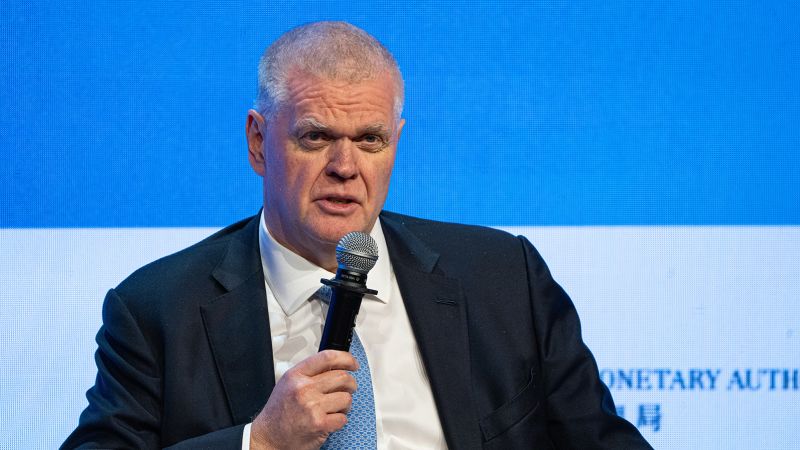Editor’s Note: Sign up for CNN’s Meanwhile in China newsletter, which explores what you need to know about the country’s rise and how it impacts the world.
Diversification away from China is increasing, and it doesn’t just affect foreign companies, according to HSBC CEO Noel Quinn.
Speaking at the Bloomberg New Economy forum in Singapore on Wednesday, Quinn said the head of one of HSBC’s units had recently reported a 70% jump “in activity in helping Chinese clients diversify their business model outside of the land mass of China. So that’s an interesting shift.”
Quinn, who was appointed CEO in 2020, said data showed there was more activity on “Chinese clients going out of China at this point in time than there is activity into China.” He was responding to a question on firms de-risking from the world’s second largest economy.
HSBC (HSBC) is the world’s largest trade finance bank, with a focus on Asia, meaning it helps importers and exporters carry out transactions.
Quinn said it was seeing Chinese suppliers in particular spreading out their supply chains “into other parts of Asia, other parts of the world.” He suggested the trend made sense as China was gradually shifting away from serving as the factory of the world.
For decades, China has enjoyed rapid economic growth thanks to its status as a global trade and manufacturing powerhouse. In recent years, the country has tried to shift its economic center of gravity toward output driven by services and consumption.
“China is changing its economic growth model. So its supply chains and its supply to the world is going to change over the next 10 to 15 years,” noted Quinn.
The pattern of diversifying away from China has been going on for years, with many Chinese firms also investing in manufacturing overseas as they seek out lower costs, according to a July report by research provider Rhodium Group.
But relocating to countries such as Vietnam or India doesn’t mean China will lose out, because new factories in these destinations may still require the use of Chinese-made supplies, the firm said. Replacing China’s role “will take years if not decades,” researchers wrote.
De-risking, meanwhile, may be harder to detect, as “there is no single economic data series that can effectively capture companies’ decisions to intentionally reduce their real economic exposure to China,” according to the report.
De-risking is a buzzword that originated from the financial world. It refers to the concept of reducing risk while not cutting ties entirely.
In recent months, officials and executives in the West have pointed to a need for this strategy as a way to manage their exposure to increased geopolitical uncertainty in China.
Quinn emphasized Wednesday that the Chinese market remained attractive to many international businesses as the country’s rising class of consumers and urbanization continue to grow.
“If you are a supplier of product, would you want to be part of that economically? Yes. Politically — that’s not my game. I look at the economics,” he said.
Read the full article here







